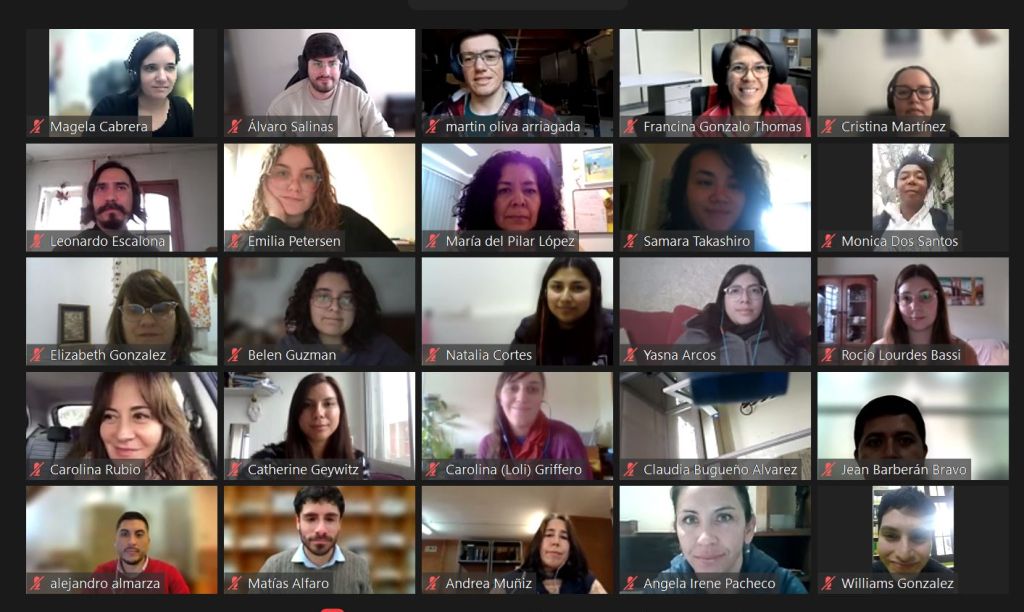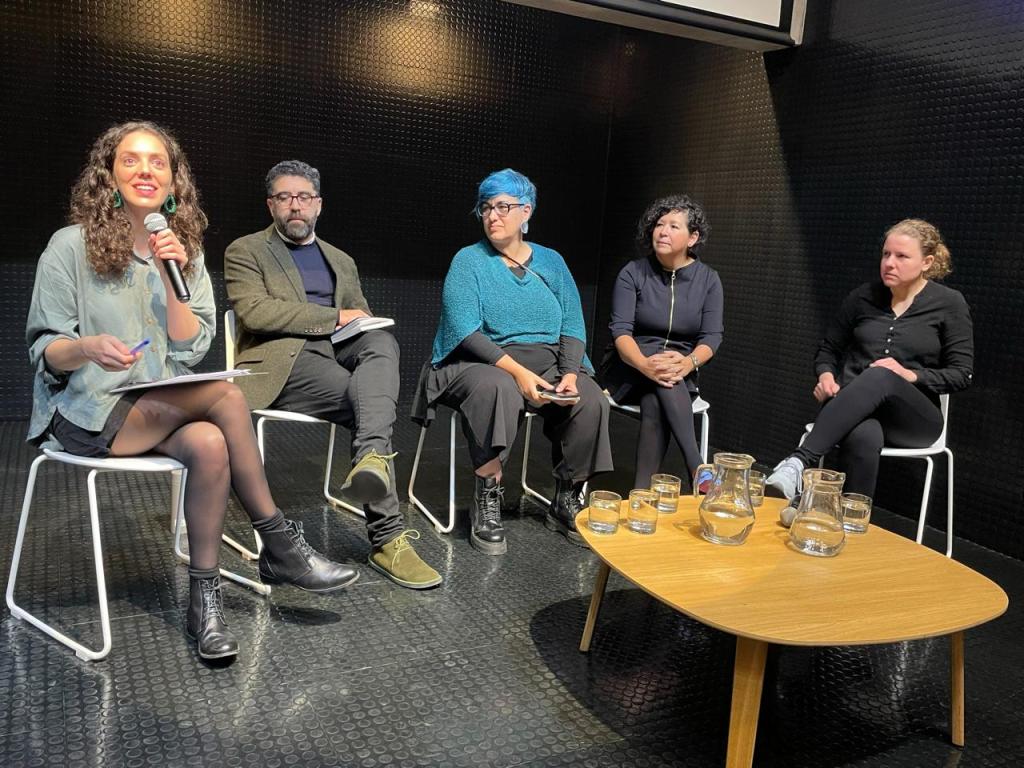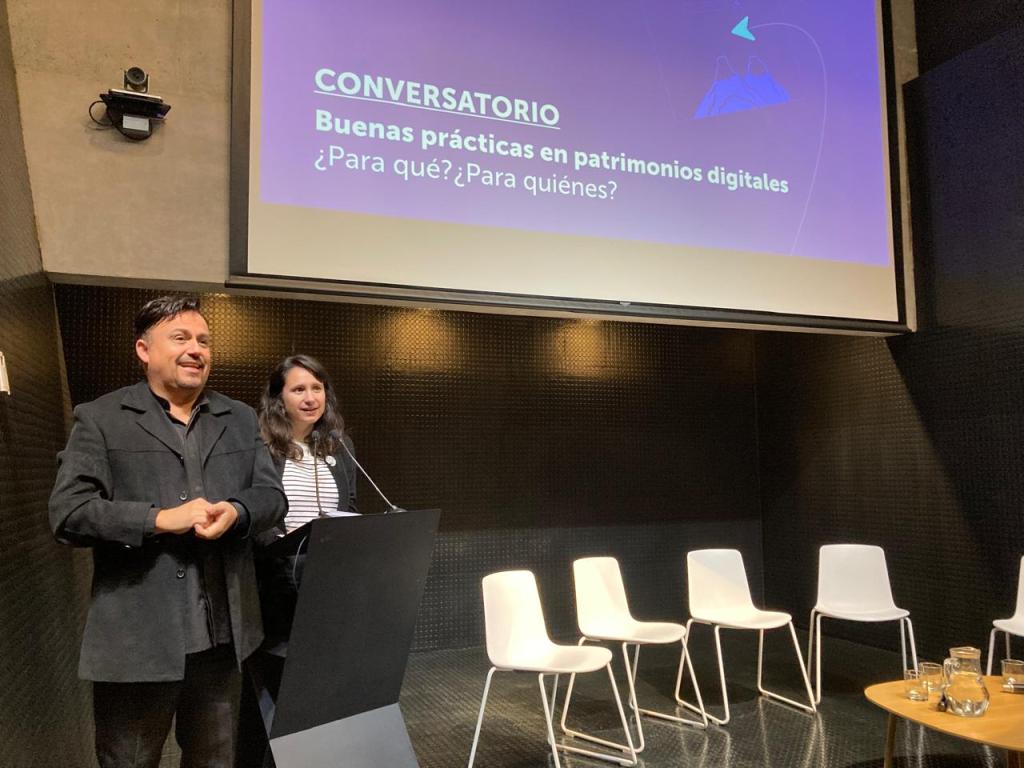During June 5, 12 and 19, the training course for cultural managers organized by Wikimedia Chile and Wikimedistas de Uruguay, Digitalize: what for, for whom? Good practices for digital heritage.
Throughout three online sessions, more than 200 cultural professionals from Latin America were trained in skills and capacities to strengthen open access to culture from their respective institutions. The sessions were led by Felipe Osorio and Patricia Díaz Rubio (Wikimedia Chile), Evelin Heidel and Nat Hernández (Wikimedistas de Uruguay), Víctor Quezada (Memoria Chilena) and Jorge Gemetto (Ártica).



The course addressed different obstacles faced by institutions in Latin America when trying to disseminate cultural heritage on the Internet: from the lack of institutional resources to problems of ownership of digitized works, concerns about the misuse of digital heritage or even the lack of clarity about the role of cultural mediators. Emphasis was placed on how these difficulties hinder the creation of effective digital strategies; and it was illustrated how, despite the investment of resources in the digitization of collections, institutions often fail to promote new uses, reach new audiences, or facilitate access to cultural heritage.
A roadmap for the digitization of culture in Latin America
This open course organized by Wikimedia Chile and Wikimedistas de Uruguay seeks to disseminate pioneering initiatives that have emerged from Latin America to digitize and disseminate cultural heritage online. The cycle was also framed in the unprecedented public policy promoted by the Undersecretary of Heritage of the Government of Chile in May of this year: the National Digital Heritage Strategy. The document, which emphasizes the material aspects of digitization, emphasizes elements necessary for effective digital heritage management, such as preservation, governance and accessibility to this information.


This roadmap promoted by the Government of Chile is in addition to other research carried out by Wikimedia structures in Latin America regarding scenarios on open access to culture in the region. These inputs helped to define the current needs in digital heritage management, to design more effectively the contents of each session, as well as to guide the exchange between speakers and participants.
In this context, attendees had the opportunity to learn about and share the objectives of projects for the digitization of cultural heritage and open access in countries such as Chile and Uruguay. Success stories were shared and training was provided on aspects of intellectual property such as copyright, its limitations and exceptions, the public domain and Creative Commons and RightsStatements licenses for the management of and access to heritage in digital environments.
Why and for whom to digitize cultural heritage? The need for capacity development in the region.
The course was well attended and positively received by cultural promoters and professionals. It was highlighted as a pioneering initiative of these characteristics in Latin America, the lessons learned were valued and the fact that it was free and open was celebrated.
At the closing of the course, course participants were invited to answer an anonymous evaluation survey. Here we share some comments received:
“I am from Chile, but it caught my attention and motivated me to see a variety of countries represented, mainly in the chat sessions, so it would be great to have a second opportunity to learn about other work experiences, which are surely being developed.”
“I am very grateful for the opportunity, I hope you keep me in mind for future courses like this one.”
“A very enriching workshop that leaves you wanting much more.”
“Very interesting to discover how Wikimedia works, may these training sessions be repeated! Thank you very much!
“I greatly appreciate the time and effort you dedicated to imparting such valuable knowledge. I hope to be able to apply everything I have learned in my daily work.”
You can review the recordings of the classes of this course in the Youtube channel of Wikimedia Chile: Good practices for digital heritage 2024.

Can you help us translate this article?
In order for this article to reach as many people as possible we would like your help. Can you translate this article to get the message out?
Start translation